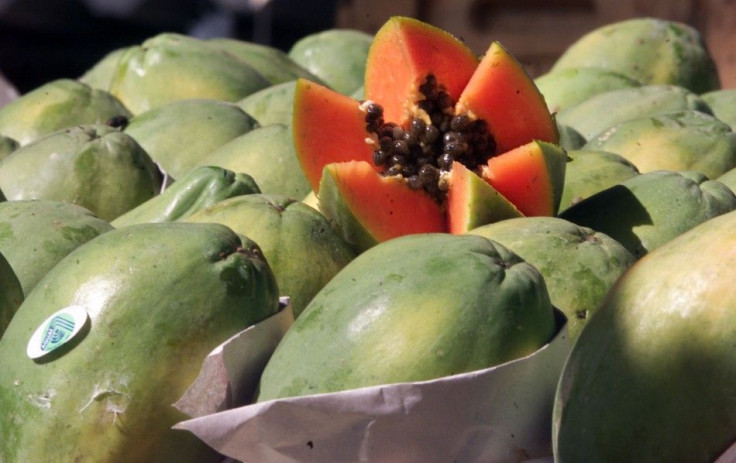Mexican Papayas Recalled, Linked to Salmonella Outbreak in 23 States

Agromod Produce, Inc. based in McAllen, Texas says the fruit has the potential to be contaminated with Salmonella, an organism which can cause serious and sometimes fatal infections in young children, frail or elderly people, and others with weakened immune systems.
U.S. health regulators on Monday warned people not to eat Mexican-grown papayas from Texas distributor Agromod Produce as they investigate a possible link to a salmonella outbreak in 23 states.
The company is recalling Blondie, Yaya, Mañanita, and Tastylicious Brand papayas sold prior to July 23, 2011, which can be identified by a white and blue sticker with red and white lettering that states "4395 Tastylicious MEXICO."
The outbreak of Salmonella Agona has resulted in 97 reported cases of illness, ten of which have been hospitalized, across the country, the U.S. Food and Drug Administration said. Fresh, whole papayas were distributed nationwide and to Canada through retail stores and wholesalers, FDA noted.
Healthy persons infected with salmonella often experience fever, diarrhea, nausea, vomiting and abdominal pain, according to health officials. In rare circumstances, infection with salmonella can result in the organism getting into the bloodstream and producing more severe illnesses such as, endocarditis and arthritis, they add.
The papayas were imported from Mexico and are possibly linked to 97 reported cases of Salmonella Agona, including 10 hospitalizations, in 23 states throughout the United States. Recent sampling by the FDA found the outbreak strain in two papaya samples collected at Agromod Produce, Inc. location in McAllen, TX and at the U.S. border destined for Agromod Produce, Inc.
The shipments that tested positive with the outbreak strain were not distributed in the U.S. Distribution of the product has been suspended while FDA and the company continue their investigation as to the source of the problem.
The infection is the most common U.S. foodborne illness and continues to strike the country as often as it did 15 years ago, linked to contaminated meats, produce and processed foods, as Reuters reports. In 2010, the illness caused nearly 2,300 hospitalizations and 29 deaths.
© Copyright IBTimes 2024. All rights reserved.











